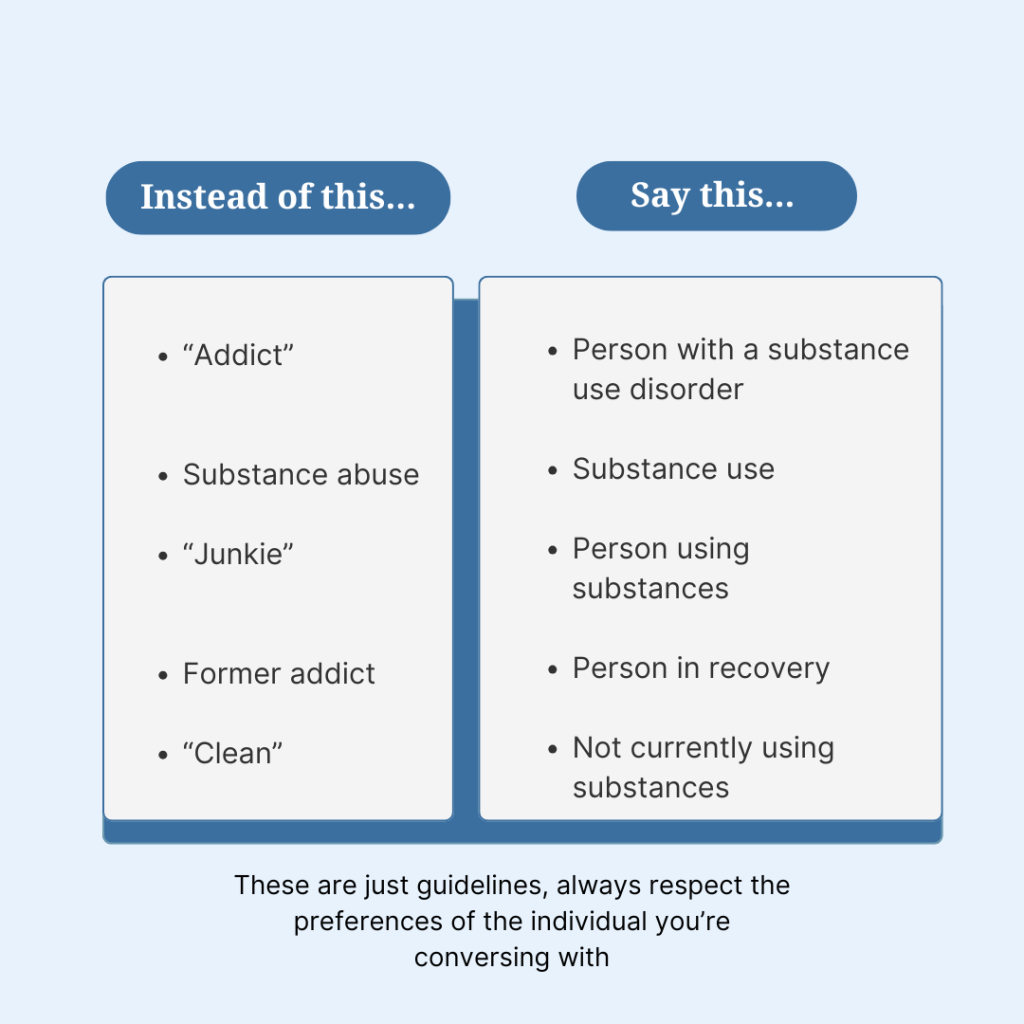Stigma is one of the most significant barriers preventing individuals struggling with substance use disorders and behavioural addictions from getting support or treatment. As our name implies, Stigma Ends at CU is committed to reducing stigma in our community. In order to reduce stigma, we need to understand stigma and what causes it.
So, what is stigma? According to the Canadian Centre on Substance Use and Addiction, stigma is “any attitude, belief or behaviour that discriminates against people”. A pervasive misconception surrounding substance use disorders and addiction is that our society equates substance use disorders/addiction to a moral failing by the individual. It is a common belief that individuals choose to struggle with a substance use disorder or addiction and that they simply need enough willpower to “get over it”. This notion could not be further from the truth. Substance use disorders and addiction are not a choice and people facing challenges with them deserve the same compassion as anyone struggling with any other illness. Prejudice and misunderstanding towards substance use disorders and addiction are extremely prevalent in our society and are difficult to counteract. This common negative perception of substance use disorders and addiction is internalized by those facing challenges with them. The absorption of this negative messaging leads to feelings of shame and decreased motivation to seek support due to that shame.
One of the main causes of stigma is an ignorance/lack of education surrounding a topic. If an individual is uneducated about a topic, they are susceptible to believing and absorbing misinformation and prejudice coming from others or society as a whole. A powerful tool for the reduction of stigma is education. An effective education strategy is to inform others how the language we use can harm others and provide appropriate alternatives. Often people think that our words don’t matter. What difference does it make whether I say someone is “in recovery” instead of “clean”? The reality is that the language we use shapes our perception of the world around us. Negative words we use can translate into negative attitudes which then manifest into negative behaviours which lead to discrimination.
The “person-first” language model is at the forefront of a movement that aims to change the way we speak about substance use health. This approach emphasizes the personhood of the individual who may be facing challenges with substance use disorders or addiction instead of reducing them to stigmatizing labels like “addict” which conflates the individual’s identity with their illness.
The following are some examples of common harmful phrases and their person-first language counterparts. It is important to note that these are suggestions, and the language preferences of an individual being referred to should always take priority:

Continuing to educate yourself and those around you about the impact of language on our perceptions of others can gradually change overall attitudes towards those facing challenges with substance use disorders and addiction. Politely correcting those around you when they use one of the harmful phrases listed previously is a very simple yet impactful action that all of us can take in our day-to-day lives. Together, we can work towards a community where stigma no longer serves as a barrier to support and understanding.
Reference:
CCSA & CAPSA. (n.d.). Overcoming Stigma Through Language: A Primer. Canadian Centre on Substance Use and Addiction. https://www.ccsa.ca/sites/default/files/2019-09/CCSA-Language-and-Stigma-in-Substance-Use-Addiction-Guide-2019-en.pdf
Author: Brianna Chapman

Leave a Reply